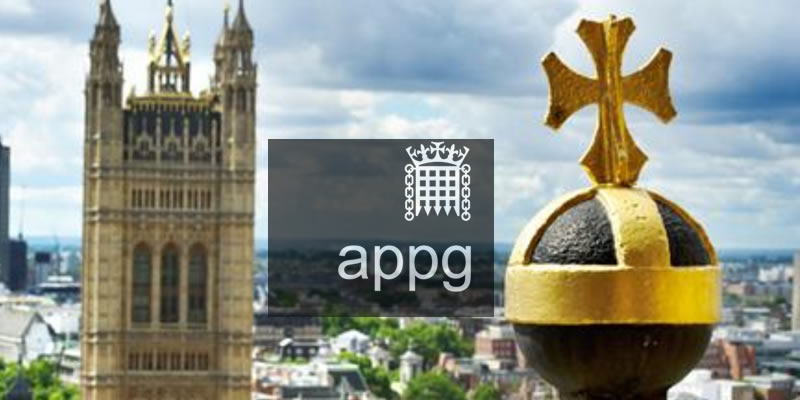I baffle at certain things happening in this country. It is clear that we are sitting on a keg of gunpowder and if utmost care is not taken, grave consequences beckon for the United Kingdom.
This piece is as a result of an encounter on my way to work. I stumbled on some protesters carrying placards with inscriptions such as “Nigeria rejects APPG Report”, “The United Kingdom Must Rise to the Occasion”, and many others that I can not remember. However, what struck me was ‘APPG’ boldly captured.
Upon getting to the office, I ran quick research on the APPG report on Nigeria. To my utter disappointment, the content seemingly justified the protest. I could not place the rationale behind such a document that was filled with half-truths. At some point, I questioned my identity as a Nigerian and wondered if it was ever possible that such would have taken place without a mention in the media or other public forums, only for a foreign association to blow off the lid.
I am consequently duty-bound as a Nigerian to take a position on the report and what the African nation, as well as the United Kingdom, must do towards consolidating ties for more outstanding achievements.
As a first, Nigerian is surrounded by Francophone countries, and it is a known fact that there has been no love lost with these nations right from time immemorial. The Boko Haram crisis has further validated this with the nonchalance of the ex-French colonies towards ending the scourge.
A lot of instances buttresses this. I must add that the fact that the Boko Haram terrorists still find the nerve to carry out attacks in some parts of North-East Nigeria is a function of the ignoble role of the Francophone countries.
Unsurprisingly, however, these nations are acting the script of the French interest in the affairs of Nigeria. The Boko Haram crisis in Nigeria is indeed one big pointer to the role France has continued to play in the West African sub-region.
It is also common knowledge that the European country is interested in the Boko Haram crisis for some motives that are ultimately aimed at the disintegration of Nigeria. This is the more reason why the United Kingdom must do all within its means to see that the French interest does not fully materialize.
Sadly, however, the UK has instead looked away, forsaking considerable role played in the country’s colonization in which it rightly acted as the father under the Commonwealth of nations. This is also despite Nigeria growing to become one of its strongest traditional allies in Africa. It remains a blunder that must be corrected in good time and this era of Brexit.
Brexit is here to stay and the United Kingdom must come to terms and realize that this period would require the strengthening of ties with its traditional allies like Nigeria. When the transition period ends, the UK will automatically drop out of the EU’s primary trading arrangements, the single market and the customs union.
The single market entails countries sharing the same rules on product standards and access to services. The customs union, meanwhile, is an agreement between EU countries not to charge taxes on each other’s goods. If a new trade deal is not ready to replace these arrangements, then tariffs (taxes) and full border checks would be applied to UK goods travelling to the EU. Tariffs would make UK goods more expensive and harder to sell in the EU, while full border checks could cause long delays at ports.
The reality today, though, is that the UK needs its allies more than her European neighbours under the new trade agreements. Consequently, the UK parliament must prioritize stability in Nigeria as a long term strategy that would be ultimately beneficial to both countries. It would thus be a great disservice for the UK to allow Nigeria disintegrate under their watch and the more reason why the APPG must be called to question as regards its report on Nigeria.
It isn’t all doom and gloom, however. There are a couple of things that must be done as a matter of urgency by the UK government. One, it must quickly see how it can mobilize arms for Nigeria to decisively deal with the Boko Haram as well as other security threats in the country. The UK must also develop a long-lasting strategy towards lobbying the United Nations for international assistance for Nigeria in the prosecution of the Boko Haram war and other security challenges in the country.
There is need for technological expertise from the UK to help Nigeria in its counter-insurgency operations in the areas of tracking the sources of arms and ammunition used by the Boko Haram group, also the sources of its funding and logistics supplies. The UK must probe the role of the various international NGOs that are present in North-East, Nigeria. All of these are not just necessary given the peculiarities of time; it would also ensure that the UK does not feel the effect of Brexit. This is aside from the fact that most countries are still grappling with the impact of the coronavirus pandemic on their economies.
I would conclude that this is not best of times for anyone in the UK government or parliament to allow itself to be used against Nigeria as the country’s peace is crucial to the survival to the post-Brexit UK. The United Kingdom needs Nigeria more, and the activities of the All-Party Parliamentary Group against the nation must be addressed in good time.
Amanze is a freelance journalist based in the United Kingdom.
